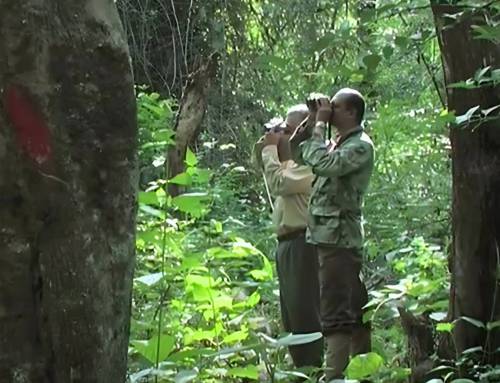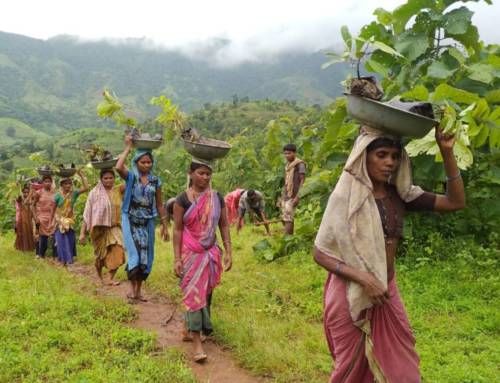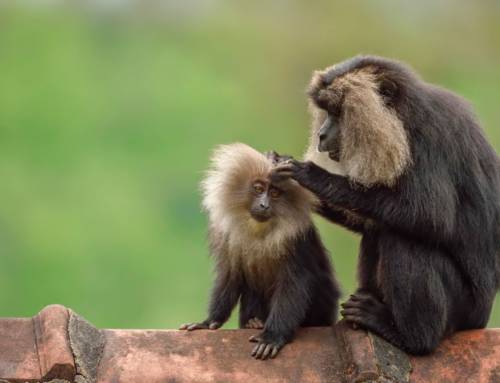Research Article: Kshettry A., Bhave N., Das P., Athreya V. (2021). Mahakal Blessed My Crop: Community Dynamics and Religious Beliefs Influence Efficacy of a Wildlife Compensation Program.
Blog Author: Shweta Shivakumar
Key Highlights:
- The authors surveyed 119 residents in 30 villages in the Jalpaiguri district of West Bengal, India, to understand crop loss due to elephants.
- Farmers facing crop losses to elephants are eligible to apply for monetary compensation to the government but chose not to in 53% of the cases.
- People who did not claim compensation did so largely due to their belief in the Mahakal elephant god, known to protect the forest.
- Other factors such as the area under cultivation, negative attitudes towards the Forest Department, past unsuccessful attempts at applying for compensation, and social network grapevine information influenced the decision of a person to claim compensation.
Ever since agriculture was practiced by humans, wild herbivores have coveted this highly nutritious source of food and competed with humans for access to it. Crop raiding by wild herbivores such as deer, elephants, and hares, leads to loss of revenue and livelihood for many farmers worldwide even today. In spaces where such losses are frequent and intolerable, farmers retaliate by persecuting these animals, many times to the detriment of the wildlife of that region.
To encourage conservation goals and ensure human livelihood protection, many strategies have been employed. This includes removal of problem-causing animals, availing crop insurance schemes, ex-gratia payment schemes, non-lethal guarding practices, and so on. The ex-gratia scheme is run by each State Forest Department of India. Damages faced due to wildlife, in the form of crop loss, property damage, injury, or death, are compensated through monetary relief to support the person facing the loss. This scheme was put in place to foster conservation values and ease some of the negative attitudes toward wildlife. But not much attention is given to the psychological and cultural drivers of claiming ex-gratia among the people and its effectiveness in mitigating losses to people.
The authors of this study looked at the psycho-social and economic factors affecting the implementation of the ex-gratia payment scheme for crop loss due to elephants. The authors conducted 119 semi-structured interviews across 30 villages of Jalpaiguri District, West Bengal, and asked the residents about crop losses they have experienced. Half of the respondents mentioned wildlife-related crop losses and stated the elephant as the prime cause for this. People who faced crop loss were asked if they claimed ex-gratia payment from the government. This study revealed that 53% of the respondents never claimed it. The authors found that the ethnicity of the respondents, the distance of their dwelling from the forest, the area they had under cultivation, and the respondent’s cropping patterns affected the probability of the person claiming or not claiming ex-gratia from the government to varying degrees.
In order to understand this better, further investigation was conducted to understand the psycho-social reasons for not claiming compensation for crop loss due to elephants. Some of the less common reasons for not applying compensation were past experiences of unsuccessful ex-gratia claims, a negative evaluation of the forest department officials, and ignorance of the ex-gratia filing process. Interestingly, the most frequently cited reason for not applying for ex-gratia support was their belief in the “Mahakal”, an elephant god. This included 38% of the Adivasi respondents, 53% of the non-Nepali Hindu, and one Muslim community member. The Mahakal is either worshiped as Lord Shiva’s carriage in the Hindu community or idolized as an oval stone by the Adivasis. The residents believe that enraging the Mahakal will bring about doom (Maha: great, Kal: doom). Applying for ex-gratia for the “offering” (or raided crop) to elephants was a risk this community did not want to take.
This study brings about an interesting religious sentiment among the people living with large herbivores such as elephants in the Jalpaiguri district of West Bengal. Even though elephants have the capacity to destroy a year’s worth of crops overnight, the people’s unique worldview of the elephant perpetuates the conservation of this enigmatic giant. When improving ex-gratia schemes, this socio-economic factor could be taken into consideration for more effective loss mitigation.
You can access the original article here.
Keywords: Elephant, Ex-gratia program, conflict, crop damage





